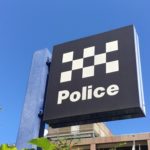The Rules Relating to Police Interviews in New South Wales

Being asked to attend a police interview can be daunting.
It can raise questions like: Do I have to participate? Should I participate? Will participating make it more or less likely that I’ll be charged? What can and can’t I do at the interview? What is the process? Can and should I have a lawyer present?
Here’s a summary of the rules and procedures.
What are my rights at the police station?
Under section 122 of the LEPRA, a police officer must, as soon as practicable after a person is arrested, caution the person that:
- The person does not have to say or do anything but that anything the person does say or do may be used in evidence (the right to silence) (but see the exception outlined below regarding ‘special cautions’), and
- Provide the suspect with a summary of their rights while under arrest (known as ‘Part 9 rights‘).
Rights outlined in the Act in relation to suspects under arrest include:
- The right to communicate with a friend, relative, legal practitioner or independent person under section 123 of the Act.
- The right to an interpreter, should the suspect not be comfortable communicating in English, under section 128 of the Act.
- The right to communicate with a consular official, if the suspect is a foreign national under section 124 of the Act.
What is a police interview?
A police interview generally occurs in an interview room at a police station for the purpose of investigating an actual or suspected criminal offence.
Police interviews can include conversations with victims, witnesses and suspects.
Interviews with suspects commonly occur following a formal arrest (rather than a voluntary interview), and a person will generally be told they are under arrest when they attend the station.
Being ‘arrested’ after voluntarily attending a police station generally does not involve being handcuffed or manhandled; it is merely a formal process which triggers a number of arrest rights.
How long can I be held at the police station?
After arrest, police will conduct inquiries which will usually involve asking you whether you wish to participate in an interview.
The period for police to do this is known as the ‘investigation period’.
Section 114 of the Law Enforcement (Powers and Responsibilities) Act 2002 (NSW) (the LEPRA) states that a suspect can be detained for a ‘reasonable time’ for the purposes of an investigation including questioning.
However, section 115 of the LEPRA makes clear that the maximum investigation period before a person is either charged with a criminal offence (after which police will make a determination regarding whether to release him or her from the police station on bail) or released from custody is 6 hours.
However, section 118 of the Act provides that police may apply for a detention warrant to extend this period for up to an additional 6 hours.
Under section 117 of the Act, the investigation period does not include what are colloquially termed ‘time outs’, which include waiting time, time to contact a lawyer or family, to have refreshments, to use the toilet, to be transported from place to place if necessary, to undertake an identification parade and so on.
Section 116 of the LEPRA provides that in determining the ‘reasonable time’ for any particular arrested person, the following circumstances can be taken into account:
- the person’s age, physical capacity and condition and mental capacity and condition,
- whether the presence of the person is necessary for the investigation,
- the number, seriousness and complexity of the offences under investigation,
- whether the person has indicated a willingness to make a statement or to answer any questions,
- the time taken for police officers connected with the investigation (other than police officers whose particular knowledge of the investigation, or whose particular skills, are necessary to the investigation) to attend at the place where the person is being detained,
- whether a police officer reasonably requires time to prepare for any questioning of the person,
- the time required for facilities for conducting investigative procedures in which the person is to participate to become available,
- the number and availability of other persons who need to be questioned or from whom statements need to be obtained,
- the need to visit the place where any offence concerned is believed to have been committed or any other place reasonably connected with the investigation of any such offence,
- the time during which the person is in the company of a police officer before and after the person is arrested (including any period during which the person was a protected suspect),
- the time taken to complete any searches or other investigative procedures that are reasonably necessary to the investigation (including any search of the person or any other investigative procedure in which the person is to participate),
- the time required to carry out any other activity that is reasonably necessary for the proper conduct of the investigation.
Do I have a right to have a lawyer present during a police interview?
Under section 123(1)(b) of the Act, a suspect has a right to communicate with a legal practitioner prior to the beginning of interview and ask the legal practitioner to be present during the interview.
Section 123(5) of the Act, if a suspect has requested a legal practitioner be present during the interview, the ‘custody manager’ (the officer in charge of your detainment) must:
- Allow the person to consult with the Australian legal practitioner in private and must provide reasonable facilities for that consultation, and
- If the person has so requested, allow the Australian legal practitioner to be present during any such investigative procedure and to give advice to the person.
Are statements made during a police interview without a lawyer admissible in court?
Unfortunately, the right to have a lawyer present during a police interview is optional and a suspect must request to have their lawyer present.
There are no provisions in the Evidence Act 1995 (NSW) or other laws which provide that an interview undertaken without the presence of a lawyer is inadmissible.
Such evidence may be inadmissible for other reasons, including that that they were obtained by illegal or oppressive conduct or that they may be unreliable.
The removal of the right to silence in New South Wales
In 2013, section 89A was inserted into the Evidence Act 1995 (NSW) which essentially says that if a lawyer is present with a client during ‘official questioning’ (including during an interview) in relation a suspected ‘serious indictable offence’ (which is any offence punishable by at least 5 years in prison), the police can give the client what’s known as a ‘special caution’.
This caution essentially states that if the person is later charged, anything he or she failed or refused to mention, including if he or she refused an interview, can be used against them in later court proceedings.
This law for all intents and purposes removes the right to silence if a lawyer is present.
The effect has been to give police what they had long desired: keeping lawyers away from police stations so they can have free reign on suspects; in other words, the ability to pressure them into interviews.
Of course, the reason lawyers are now reluctant to attend is because they have a duty to act in the best interests of their clients, and turning up with a client to a police station will trigger this ‘special caution’ and thereby a dilution in the right to silence.
So, at the end of the day, we are seeing far fewer lawyers attending police stations and police therefore being able to coax suspects into giving interviews without the presence of a lawyer, often against the advice of their lawyers.
What happens if I’m charged and police refuse to release me from the station?
If police charge an arrested person with a crime and decide not to release the person from the station on what’s known as ‘police bail’, the person will need to be taken before a magistrate (ie to a local court) as soon as reasonably be practicable, which will be on the same day if time permits or the next day at the latest.
To reduce the chances of being in a holding cell overnight, it is a good idea to attend the police station early in the morning.
This will increase the likelihood of being taken to a court that day where a bail application can be made for release from custody.
Called for a police interview?
Call Sydney Criminal Lawyers anytime on 9261 8881 to request a conference with one of our experienced criminal defence lawyers who will advise you of your options and the best way forward, and fight for the optimal outcome.






